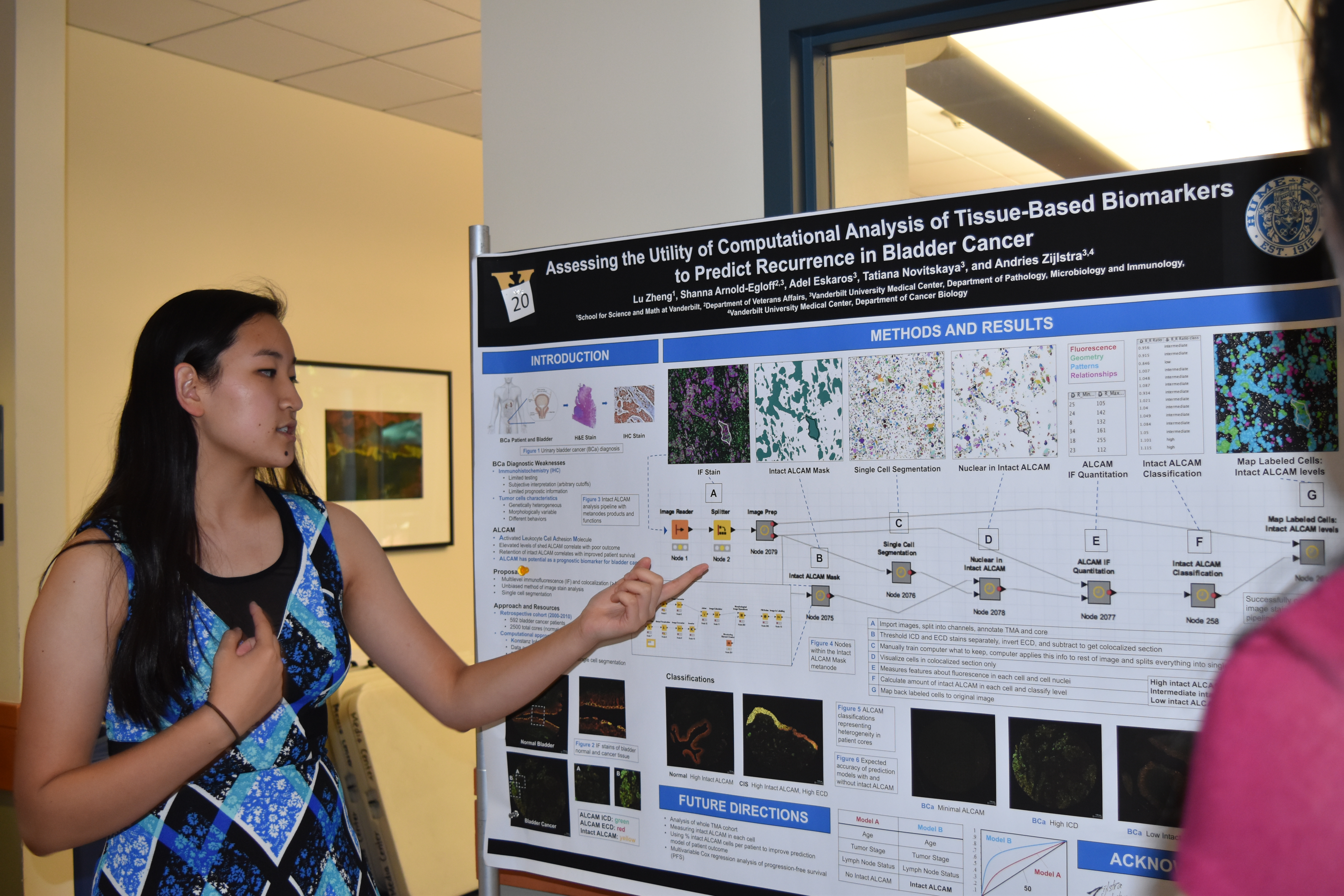Authors: Dr. Zijlstra and Dr. Angela Eeds
Lu Zheng, a senior from Hume-Fogg Magnet High School in Nashville and participant in the School for Science and Math at Vanderbilt (SSMV), was selected as semifinalist in the US national Siemens Competition in Math, Science and Technology for using computational analysis of tissue-based biomarkers in cancer.

Zheng’s research project, “Assessing the Utility of Computational Analysis of Tissue-Based Biomarkers to Predict Recurrence in Bladder Cancer,” was selected from nearly 2,000 projects submitted. Zheng is one of nine semifinalists from Tennessee and 491 semifinalists overall.
Zheng conducted the research under the mentorship of research assistant professor Shanna Arnold, in the laboratory of Andries Zijlstra, an associate professor in the Department of Pathology, Microbiology and Immunology and the Program of Cancer Biology at Vanderbilt University Medical Center.
Zheng’s work focused on predicting the outcome of bladder cancer patients treated by surgical resection of the bladder (cystectomy) at Vanderbilt University Medical Center. Up to 50% of these patients with bladder cancer will develop distant disease within two years after complete surgical removal of the bladder and associated tumor. Identifying patients who require more aggressive therapy compared to watchful-waiting could improve outcome in patients whose disease is more likely to spread, prevent overtreatment of patients who will not respond to the intervention, and reduce overall healthcare costs.
Conventional immunohistochemical staining (IHC) for biomarkers of cancer is generally limited to testing one biomarker (antigen) at a time, is semi-quantitative, and has led to arbitrary cutoffs for marker positivity. This can lead to inadequate diagnosis and treatment recommendations based on subjectivity and initial marker study bias.
To overcome these limitations, Lu Zheng, under the mentorship of Drs. Andries Zijlstra, Shanna Arnold, and Tatiana Novitskaya achieved multiplexing of biomarkers using photocleavable labels developed in collaboration with Lasergen Inc. and built an image analysis pipeline using KNIME Analytics Platform to enable the analysis of multiple markers in thousands of bladder cancer tissues on a single-cell basis. Their KNIME pipeline: 1) processes thousands of tissue images, 2) integrates >8 different immunofluorescent stains on a single tissue section, 3) performs single-cell segmentation and signal quantitation to account for the tumor heterogeneity, and 4) aligns millions of single-cell data with patient data in order to test marker impact on patient outcome.
The product of this strategy is a computer-guided prediction of patient outcome that takes into consideration the complexity of the disease at a single-cell level. Beyond the immediate technological gains and academic understanding, this work matches an ongoing evolution in digital pathology that will undoubtedly reshape how patients are diagnosed and how treatment decisions will be made in the clinic.
Via Vanderbilt News
